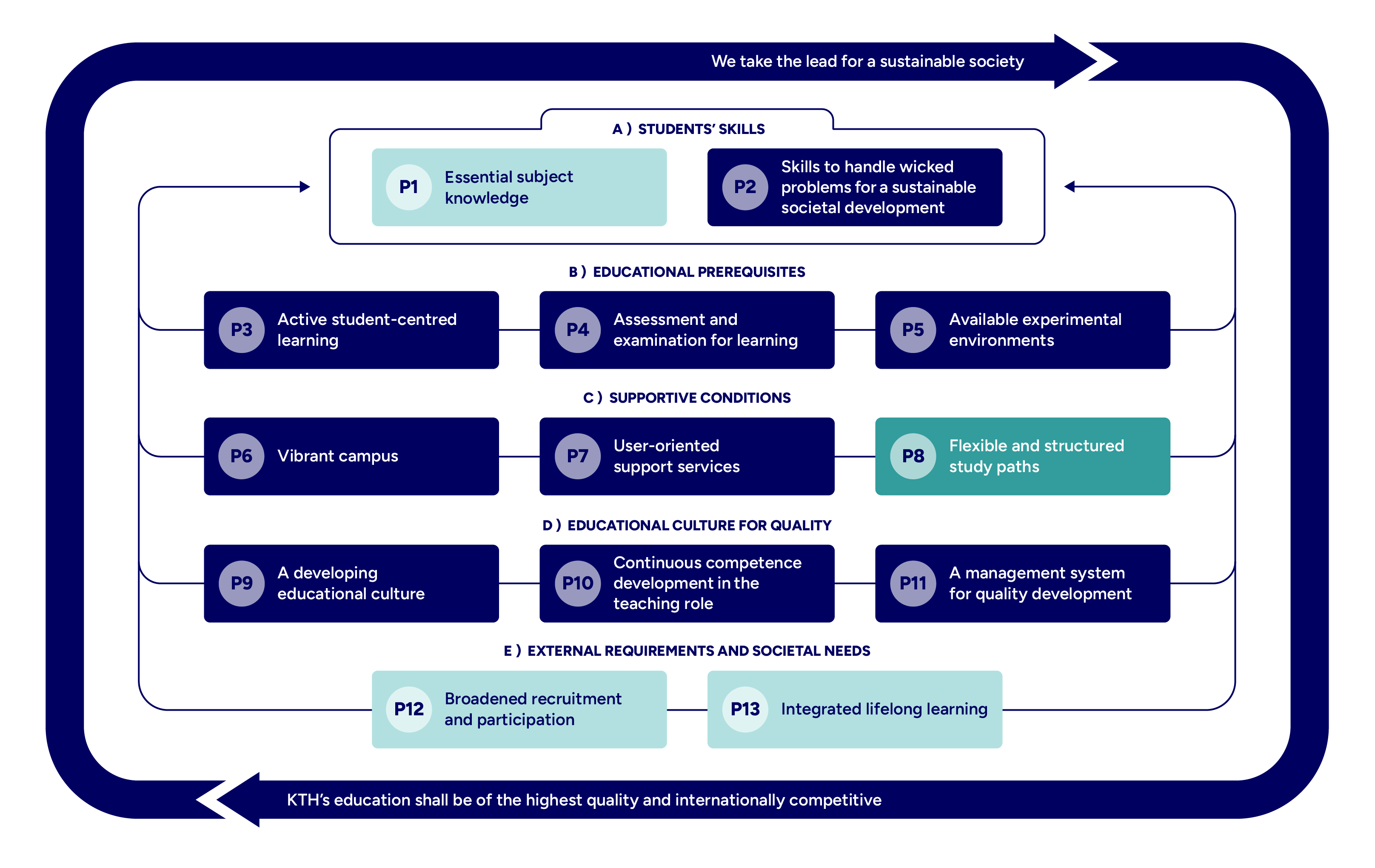E-mobility as a transversal Master’s profile
This KTH-wide project involves packaging and clearly communicating an interdisciplinary competence profile within the thematic area of electric mobility as a pilot – without the need to create new programmes or tracks – and to create a generalised working method applicable to other thematic areas.

Project context
KTH needs to work more efficiently when it comes to course packaging and profiling, which provides clarity and flexibility for our students but also clearer communication to the outside world about KTH's educational offering. The future will develop at an accelerating pace, which is why we also need to have tools to adjust and rearrange our education in a fast and resource-efficient way. Perhaps this implies to just repackage the courses we already have in a new ‘thematic area’.

However, launching new programmes solely to increase visibility is not sustainable, and current programme tracks do not communicate this specialisation clearly enough. Electric mobility is therefore suitable as a pilot for work on thematic areas, as it would enable work to be done efficiently and with direct results.
*for example Fordonsindustrins framtida behov (pdf Swedish, regionstockholm.se)

Purpose (outcome)
The main and general aim of the project is to study how different thematic profiles can be created without having to establish new tracks or new programmes. Specifically, this will be done within the thematic area of electric mobility, so that:
- KTH's course offering in electric mobility is clarified, without creating new programmes or tracks
- In the near future, the classrooms will be "filled" with more students and greater variation in program affiliation. In the long term, KTH will receive more students
-
Professionals will receive a well-packaged range of courses in electric mobility through lifelong learning
-
Society's need for expertise in electric mobility is met.
Project results (output)
-
A definition of the best name for the thematic area of electromobility in terms of search pressure.
-
A mapping of relevant courses within the thematic area
-
Course packages linked to programmes that are adjacent to the thematic area, control of MHU labeling.
-
Communication plan: proposal for how the thematic area can be communicated and linked to programmes on the KTH website
-
A proposal for how students can get a clear profile or certificate - without creating new tracks or programmes.
-
A process for making it all work in the long term (incl. method development for application to other thematic areas of the above steps).
Time plan
Start date: 2024-04-01
End date: 2026-02-01
Project documentation
If you have a KTH ID, you can read the latest project documents on OneDrive when logged in:
- Poster: Poster_FrU25_2403-KTH_E-mobility_250520.pdf (English)
- Project initiation document: Projektdirektiv_FrU25_2403-KTH_E-mobility_250911.pdf (Swedish)
